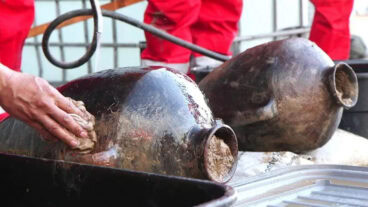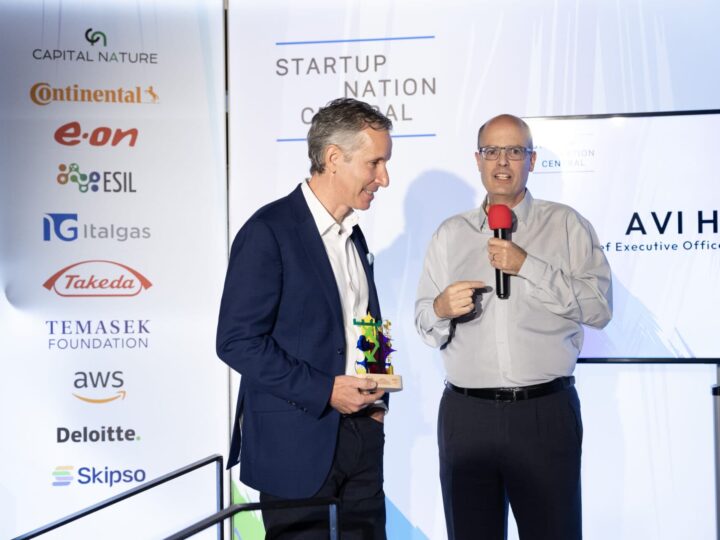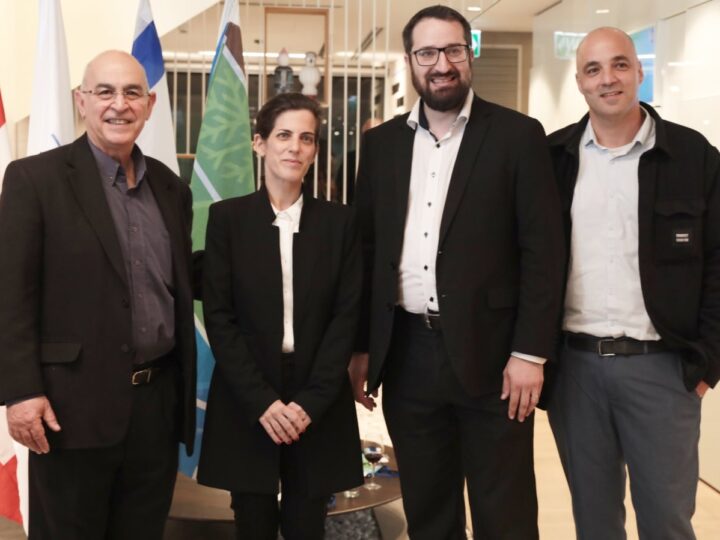A tech festival held in a forest? It makes sense when the tech in question is all about solutions to the climate crisis.
Last week, JNF Canada, Start-Up Nation Central and KKL-JNF granted over $2 million in prizes to Israeli researchers and startups as part of the first-ever Climate Solutions Prize.
The event was held in the Hulda Forest in central Israel with hundreds in attendance.
The Climate Solutions Prize, founded earlier this year, operates in two tracks, Breakthrough Research and Startup. The latter involves a series of challenges that offer investment, cash prizes and exposure to Israeli tech companies.
Each “Startup Challenge” was led by an industry or philanthropic partner: Capital Nature, ESIL, Kornit, Digital SolarEdge, Merck and the Temasek Foundation.
The winners in the Breakthrough track:
- Avner Rothschild of the Technion, for a technology that decouples water electrolysis for green hydrogen production at scale. Hydrogen holds the potential to wean the world off oil, but creating it uses large amounts of electricity, hence the need for a green solution based on renewables.
- Itzhak Mizrachi of Ben-Gurion University, for reducing greenhouse gas emissions of ruminants (hoofed herbivorous grazing or browsing mammals including cows) by reengineering their gut microbiome.
- Malachi Noked of Bar-Ilan University, for developing sodium-ion batteries that will be more environmentally friendly than today’s lithium-ion batteries for electric vehicles and electronic devices.
The winners in the Startup track:
- Copprint, which replaces highly polluting chemical processes for manufacturing electronic circuit boards and antennas with simple printing of nano-copper inks.
- Marine Edge, which reduces fuel consumption for ships, improves propulsive efficiency and minimizes carbon emissions through a machine learning-based power management system.
- Styletech, which develops AI-based visual marketing tools for the textile industry that can reduce companies’ carbon footprint by eliminating or reducing shooting days, decreasing return rates and encouraging brands to produce only by demand. A single photo can be converted into multiple high-quality looks for an unlimited supply of models.
- Smart Resilin, which produces a bio-based alternative to pollution-causing materials. Resilin is found in the cuticle of most insects and can be used in glue components, especially when redesigning sports goods such as running shoes.
- Red Solar Flower, which produces gigawatt-scale solar panels that can be deployed over agricultural areas to reduce farms’ carbon footprint and improve food security. The panels cost 40% of comparable silicon-based ones.
Jeff Hart, executive chair of the Climate Solutions Prize, said that the program is about “supercharging the ingenuity of Israel, the Start-Up Nation, to help solve the climate crisis.”
“Israel is currently home to more than 700 technology companies that are already developing solutions for addressing climate challenges, including sustainable food systems, circular economy, clean energy, efficiency and storage, sustainable mobility, sustainable manufacturing, nature protection, and many more,” said Start-Up Nation Central CEO Avi Hasson. “Israel is extremely well-positioned to take a central role in battling climate change and bringing solutions to the biggest shared challenge of our times.”

















